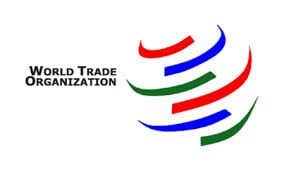Dissatisfied with the lopsided relationship, Brazilian industrials are calling on authorities in the Brazilian capital Brasilia to retaliate with some confectionery entrepreneurs even calling for a suspension of Argentina from the Mercosur trading that comprises Argentina, Brazil, Paraguay, Uruguay and Venezuela.
Others are calling for Brazil to retaliate by imposing import restrictions from Argentina, the Brazilian Association of Cocoa, Chocolate, Peanut, Candy and By-products’ Industries (ABICAB) told ConfectioneryNews.
Eye for an eye
“I believe that retaliation against the Argentine government should see … a ban on the entrance of their products into our country. The passivity of the [Brazilian] government is amazing and with every day that passes we notice that there is no strength for a contest with a 40-million strong country,” complained Fabricio Beduschi Beloti, export manager of Marilia-based Bel Chocolates.
Diego Heineck, export manager at Simonetti Alimentos, expressed a similar view. The company, which exports candy, lollipops and drops, registered a sales drop of almost 90% to Argentina over the past three years. “Brazil should also demand import licenses for every single product that originates from Argentina and then [authorities should] approve such licenses in the same volume and with the same agility as our neighbor. Another possibility is to suspend Argentina from the Mercosur [free trading pact], as the country is not following the rules of the treaty.”
Brazilian exports plummet
Brazil’s confectionery exports to Argentina plunged 20.84% to $25.27m in H1 this year, down from the $30.54m in H1 2013. In volume, Brazilian confectionery exports to Argentina fell 24.62% to 6,375t in January-June, down from 7,944t in the first half of 2013, according to ABICAB figures.
The situation is similar in the chocolate export business with the value of Brazilian exports to Argentina falling 19.42% to $19.15m in H1, down from $22.86m in H1 2013. The volume of chocolate shipments to Argentina in the first six months fell by 21.69% to 3,934t, down from 4,788t in the same period of 2013.
Confectionery maker Docile Alimentos protested the situation. “There is no value in developing Brazilian exports if we face customs barriers and a lack of trade agreements. I think it is a fundamental issue for the Brazilian government, because it makes no sense for Brazil to have a partnership with a neighbouring country and then [this country] limits free trade between the two,” said Cristian Ahlert, export coordinator at Docile Alimentos.
WTO rules against Argentinean import measures
There is precedent for change as Argentina’s strict import policies were successfully challenged in front of the WTO in late August, when an independent WTO dispute panel ruled against Argentina in a 2012 case brought by the United States, the EU and Japan relating to the South American country’s licensing rules used to restrict imports.

The WTO ruled Argentina may not require local importers or foreign firms to accept various practices forced upon them by the Argentinean authorities as a condition for being allowed to import goods into the country.
These practices include requirements to: (a) offset the value of their imports into Argentina with at least the equivalent in exports; (b) limit their imports, either in volume or in value; (c) reach a certain level of local content in their domestic production; (d) invest in Argentina; or (e) keep any profits made in Argentina in the country.
The WTO panel also ruled against a procedure known as the Advanced Sworn Import Declaration ('Declaración Jurada Anticipada de Importación', or DJAI) requiring firms to secure approval by the Argentine authorities before importing goods.
All parties have 60 days in which to appeal against the panel’s ruling. If there is no appeal, or once an appeal is completed, Argentina will have to bring itself into compliance by changing these measures, either immediately or within a reasonable period of time that will either be negotiated between Argentina, the EU, the US and Japan, or fixed by a WTO arbitrator.
